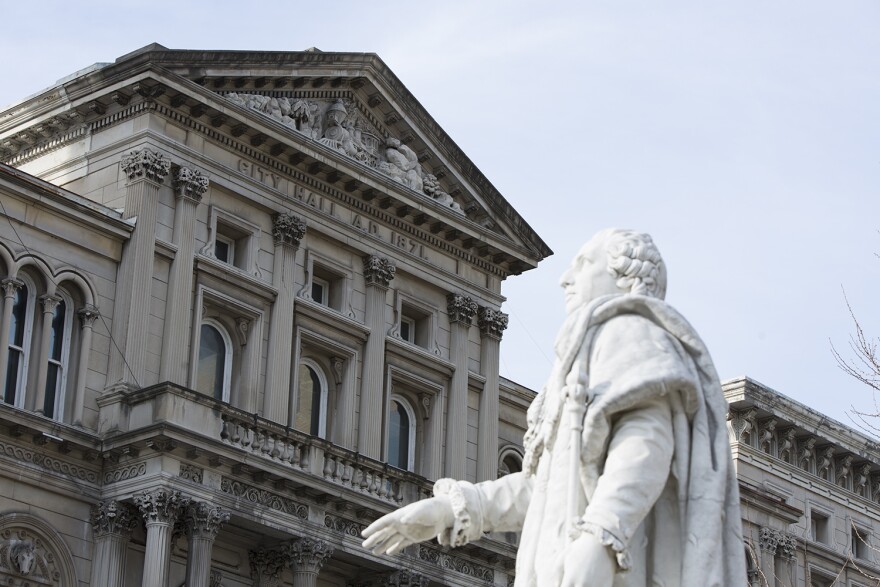Metro Council members had a lot of questions for Passport Health Plan CEO Mark Carter at a committee meeting Wednesday, weeks after the company announced it had put construction of its planned headquarters at 18th and Broadway on indefinite hiatus. Passport says state pay cuts enacted last year could drive the insurance plan into insolvency.
Carter told the Metro Council’s Health and Education Committee that the company is at risk of insolvency because the state cut the Louisville region’s Medicaid reimbursement rates last year. That rate is the money the state pays per enrollee to private insurance companies to administer Medicaid.
Carter said a previous reduction in January 2018 had caused a $26 million loss to the company. That was followed by another cut in July.
“We had initiatives in place that could address some of that. But we had a high degree of confidence, obviously — wrongly now looking back — that we would get something in the neighborhood of a 2 to 2.5 percent increase on July 1,” Carter said.
“So we thought the combination of the initiatives we put in place and the rates would allow us to break even on the year.”
Carter said that’s how rates had played out in previous years. But instead, in July the state cut the Louisville region’s rate by 4.1 percent. While the state’s other Medicaid companies are diversified in other kinds of health insurance, Passport’s main business is with Medicaid. And two-thirds of its enrollees live in the Louisville region.
At the committee meeting, Metro Councilman Brandon Coan had questions for Carter about Passport’s relationship with Evolent Health, which was set to be the main tenant in the company’s halted headquarters at 18th and Broadway.
Passportpartnered with the publicly-traded Evolent in 2015 to create a new business that would offer support to other nonprofit Medicaid plans in other states. In exchange, Passport received $15 million in Evolent stock. Evolent also took over Passport’s administrative functions and 350 employees were transferred from Passport to Evolent.
Coan asked Carter why Evolent isn’t paying for the building, considering Passport’s financial problems.
“They kind of are because they would enter into a long-term lease agreement to be the major tenant of that building, and that was key to the financing,” Carter said.
Carter added there are reasons it was beneficial for nonprofit Passport to own the building.
“We wanted to go after the market tax credits and you know that's easier to do in a nonprofit — I mean not that a for-profit can’t do it — but we thought it would be easier to do,” Carter said.
Committee Chair Keisha Dorsey asked what the impact of Passport’s insolvency would be on enrollees.
“There’d be considerable disruption in the market here: confusion among members as they get reassigned to plans, the provider community will be affected just generally around getting paid,” Carter said. “It'll all level out, but initially there will be quite a bit of confusion and impact.”
If Passport was to go bankrupt, initially, the state would take over the insurance plan and run it. But eventually members would likely be given to other insurance companies to manage.
Passport is now appealing the Louisville rate cut to a second state agency after the Cabinet for Health and Family Services denied the company’s appeal last week.


